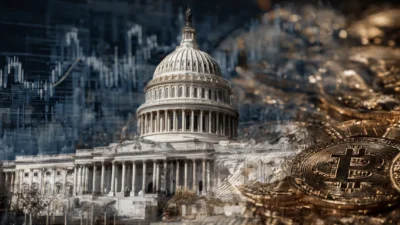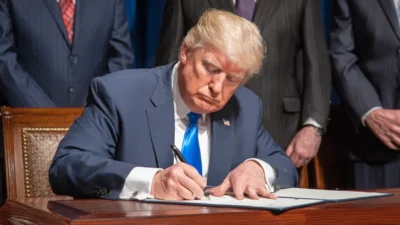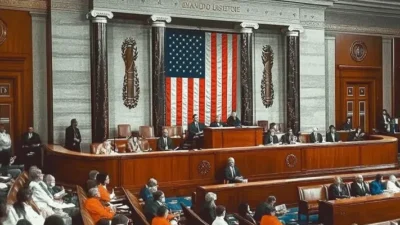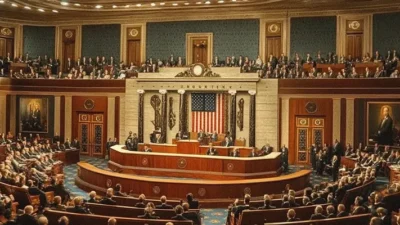TLDR
- The GENIUS ACT gets shut down.
- New Hampshire becomes the first state to invest in crypto.
- Texas is moving forward with its Bitcoin reserve bill.
- Arizona is taking a cautious approach to crypto by taking other people’s stuff.
What a week it’s been for crypto legislation in the U.S., with states seemingly racing to carve out their slice of digital asset dominance. From Arizona taking a cautionary — but progressive — step into crypto, to Texas revving up plans for a Bitcoin reserve fund, and New Hampshire declaring it’s ready to “Live Free or Die” with crypto investments, the landscape is shifting faster than the speed of a (Layer 2) blockchain transaction.
Don’t sweat it if you’ve been too busy doom-scrolling or watching Bitcoin oscillate like a yo-yo. Here’s the lowdown on the most significant state-level developments you’ll want to watch. Buckle up, because it’s about to get legislative in this piece. Let’s get after it.
Arizona Makes History With Abandoned Crypto
Arizona Governor Katie Hobbs stirred the pot this week by signing House Bill 2749 into law. What does this mean? Essentially, Arizona just said, “Hey, you know that crypto you forgot about for three years? We’re claiming it.”
Dramatic? Sure. Groundbreaking? Absolutely.
This new law lets Arizona take ownership of unclaimed digital assets if their owners stop responding to communications for a set period. These aren’t randomly acquired funds, mind you. They’ll be coming from people who owe the state back taxes and have crypto accounts that the government knows about. So no, Arizona isn’t running around doxxing wallets.
What’s more interesting is what they’re planning to do with it.

The state will funnel these digital goodies into a “Bitcoin and Digital Asset Reserve Fund.” The kicker? No taxpayer dollars involved. The fund’s value comes entirely from staking rewards and airdrops, which means Arizona is aiming to play the long game in the crypto space.
Arizona has a second bill, Senate Bill 1373, sitting on Hobbs’ desk. If passed, the state treasurer could allocate up to 10% of Arizona’s budget stabilization funds into Bitcoin. That’s a lot of skin in the game.
However, it’s worth noting that on May 3, Hobbs vetoed Senate Bill 1025, a similar measure, criticizing it for investing public money into what she called “untested assets.” Will S.B. 1373 face a similar fate? Unfortunately, the answer is “probably”.
Texas Wants to be the Crypto Capital of the US
Not to be outdone, Texas is making its own headlines with Senate Bill 21, which would establish the “Texas Strategic Bitcoin Reserve.” Like Arizona, Texas is eyeing Bitcoin specifically, but with one big difference. This reserve would focus on digital assets with a market cap of at least $500 billion. Right now, BTC is the only coin or token that falls into that category.
Will ETH ever join the party? Maybe. If it ever starts gaining some value…
(For ETH to be considered, it would have to double in price and hold it.)
The bill flew through the Texas Senate in March with a resounding 25-5 vote and just recently made it past committee in the state House on May 7.
All that’s left? A floor vote before it lands on Governor Greg Abbott’s desk. Abbott has been vocal about transforming Texas into the “crypto capital” of the US. Given his track record of accepting Bitcoin donations in his campaigns, this one could be on the fast track to approval.

What’s in it for Texas? If the bill passes, the state comptroller will use Bitcoin to establish the reserve fund, further strengthening Texas’ position as a crypto-friendly zone.
New Hampshire Takes the Lead
We have a winner! And it isn’t coming from a state most would expect.
While Arizona and Texas are still making moves, New Hampshire has already crossed the finish line. Governor Kelly Ayotte signed House Bill 302 into law on May 6, officially making New Hampshire the first U.S. state to allow its government to invest in cryptocurrencies — including Bitcoin.
H.B. 302 enables New Hampshire’s treasury to invest public funds into Bitcoin and other cryptocurrencies with market caps exceeding $500 billion. That distinction rules out altcoins and memecoins (sorry, once again, ETH holders), leaving room only for the OG.
Republicans in New Hampshire took to social media to celebrate, stating, “The Live Free or Die state is leading the way in forging the future of commerce and digital assets.” For crypto enthusiasts, this might sound like a bold proclamation, but it signals a clear commitment from the state.

Unlike Arizona’s cautious approach that focuses on unclaimed assets, New Hampshire’s bet is more direct. They’re viewing crypto and Bitcoin as financial instruments deserving of public investment, signaling confidence in digital asset adoption.
The GENIUS Act Stopped in Its Tracks
The GENIUS Act (“Guiding and Establishing National Innovation for US Stablecoins,” naturally stretching that acronym). Designed as a bipartisan push for stablecoin regulation, this bill had aims as ambitious as its name. It promised more rules for transparency, tighter anti-money laundering provisions, and, in theory, a shot at the US maintaining dollar dominance via digital avenues.
But instead of cruising to success, it crashed. Hard.
The GENIUS Act failed to pass “cloture” in the Senate this week. Translation for those of us not living on C-SPAN? It didn’t get the votes needed to shut down debate and move forward. The stumbling blocks? Drama on both sides of the aisle, capped by Democrats pulling support over late-game concerns.
It’s sad to say, but we saw this one coming…
Back to the Drawing Board
The irony of this roadblock? The GENIUS Act was supposed to be the “compromise crypto bill.” There were expectations around bipartisan collaboration because, unlike Bitcoin or DeFi, stablecoins at least seemed safer to wade into.
Their use for international payments could even bolster the dollar in global markets. But instead, this week only highlighted how crypto, much like anything else in DC right now, can’t escape the gridlock.
The absence of clarity leaves stablecoin issuers in the lurch. These companies now face a mix of state-level rules, international competition, and a lack of federal guardrails. For businesses and believers that want consistency and safety, it was a huge reminder of how far crypto’s regulation still has to go.
Does All of The Regulation Really Matter?
Yes.
What makes this week worth highlighting isn’t just the details of the laws themselves, but the broader narrative they represent. Cryptocurrencies, led by Bitcoin, are moving into the mainstream, and states are realizing the opportunity — not to mention the necessity — to get a grip on it.
States are tailoring their legislative frameworks to ensure they’re not left behind, whether through investment funds, unclaimed asset integration, or outright Bitcoin reserves.
But that rush to adopt doesn’t come without risks.
Critics of these moves warn about price volatility, long-term viability, and ethical concerns about using public funds for something as unpredictable as crypto. And those concerns aren’t unfounded. Yet, states like Texas, Arizona, and New Hampshire are signaling their willingness to accept those risks in exchange for potential rewards.
Where Are We Headed?
If the moves made this week are any indication, we’re likely to see more states throw their hats into the crypto ring soon. North Carolina and other states are already flirting with their crypto legislation.
And with Bitcoin continuing to build dominance as a decentralized store of value, it’s only a matter of time before state-level initiatives converge into federal-level debates.
For now, the conversation remains largely regional but unmistakably influential. States that move early stand to define the rules of engagement moving forward. And for those of you who’ve already got some Bitcoin stashed away, these events will likely make your holdings more relevant than ever.









































































































































































































































































